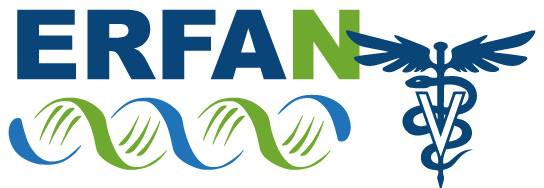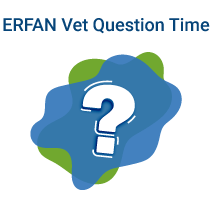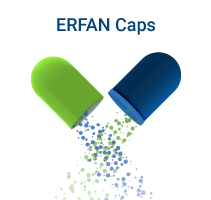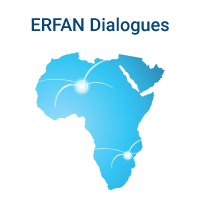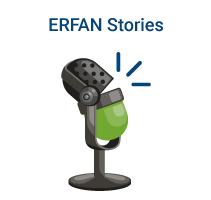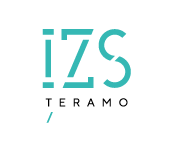The innovations introduced by ERFAN have been developed as response to a perceived need to strengthen intra-regional cooperation on animal/human health and food safety. Given the interconnectedness between human, animal, plant and environmental health and well-being, ERFAN encourages collaboration across sectors and promotes inclusive and integrated solutions to global challenges. Innovative approaches in terms of shared research and development, of communication and dissemination of results allow the network to fulfil its essential function, means to establish a collaborative framework promoting multidisciplinarity and interdisciplinarity.
Pan African scientific network
Pan African scientific network based on “One Health” approach. The ERFAN African partner institutions work locally, nationally, and globally to attain optimal health for people, animals and environment. ERFAN has a multi-sectoral and transdisciplinary dimension. The research activities focus on preventing, diagnosis and monitoring of infectious diseases (zoonosis) and on safeguarding of terrestrial and marine ecosystems. Working groups cover especially vector-borne diseases, Brucellosis, Anthrax, Tuberculosis, TSE and on Food-Borne Illness.
Bottom-up development scheme in international veterinary cooperation
ERFAN is especially focused on small-scale projects, ensuring the activities are economically, politically and socially effective, sustainable and replicable. Focusing on rural communities and the involvement of intermediate institutional bodies enable tangible results to be achieved and pilot projects to be expanded and replicated, amplifying the effectiveness of development and research actions on a large scale.
Network of veterinary diagnostic laboratories and faculties of veterinary science
ERFAN involves Veterinary Services, responsible at governmental level for diagnostic testing for infectious animal diseases, and several Schools of Veterinary Science, in charge of providing scientific knowledge for veterinary practice.
Participatory and inclusive approach
ERFAN implements training and research projects based on local needs, involving wide range of stakeholders and enhancing the aspect of sustainable development. Before the implementation of the activities, beneficiaries, stakeholders and target groups have been contacted by the project lead and involved in the planning and priority setting. ERFAN is committed to including local authorities, to encouraging consultation and involvement of social, economic and political stakeholders. This people-centred strategy suggests accountability, participation and responsiveness of Institutions involved, essential for promoting common development and growth.
Sustainability to the WOAH twinning projects
ERFAN supports WOAH’s strategy to improve global capacity for disease prevention, detection, and control. Giving sustainability to the WOAH’s twinning projects implemented in Africa Region, the scientific network strengthens national and regional laboratories capabilities, through training, innovation and research.
Various content forms have been designed to ensure the dissemination and communication of ERFAN results and activities.
